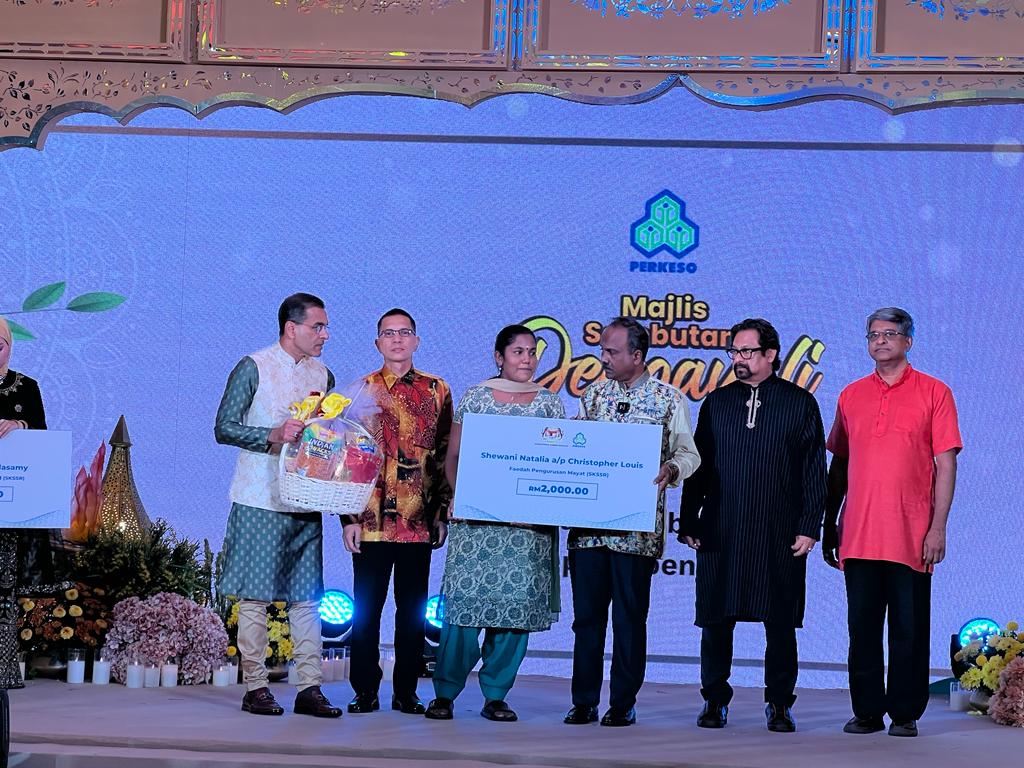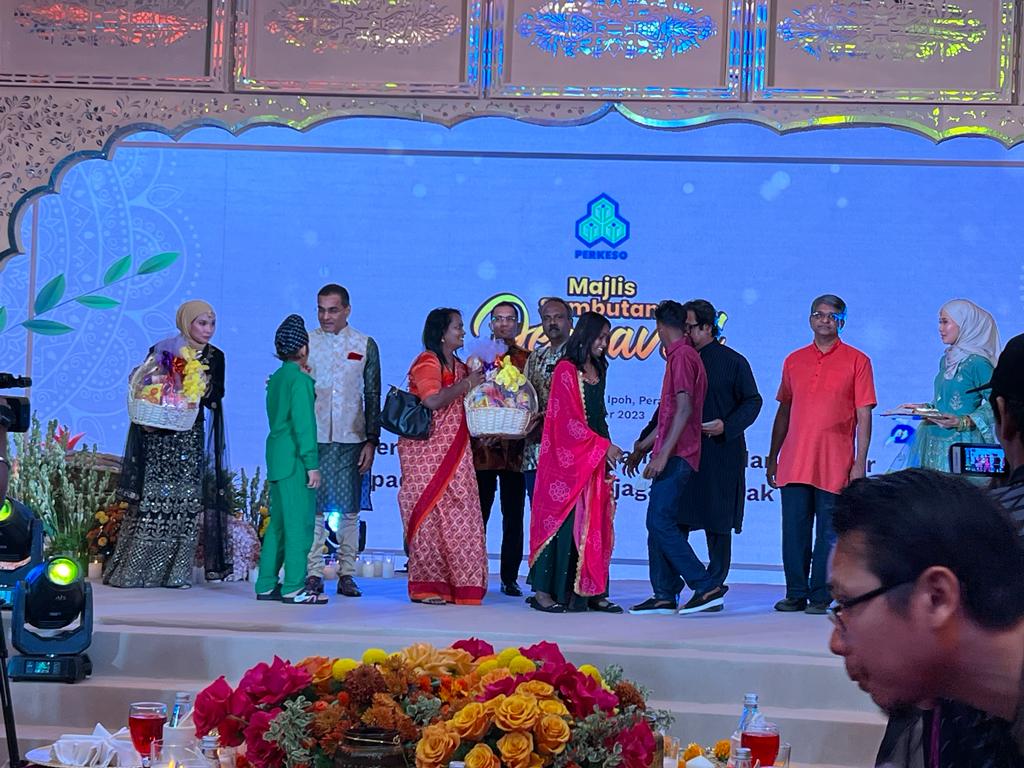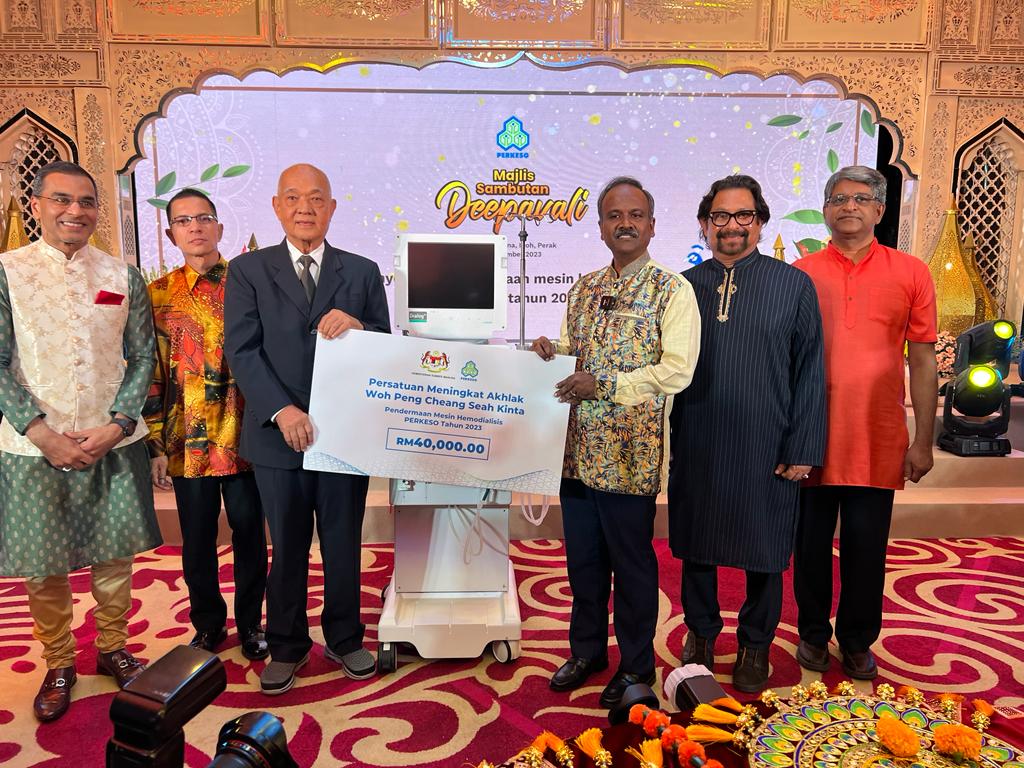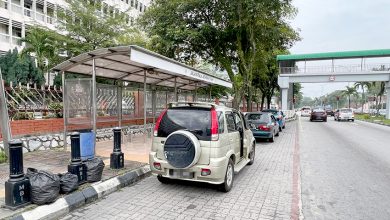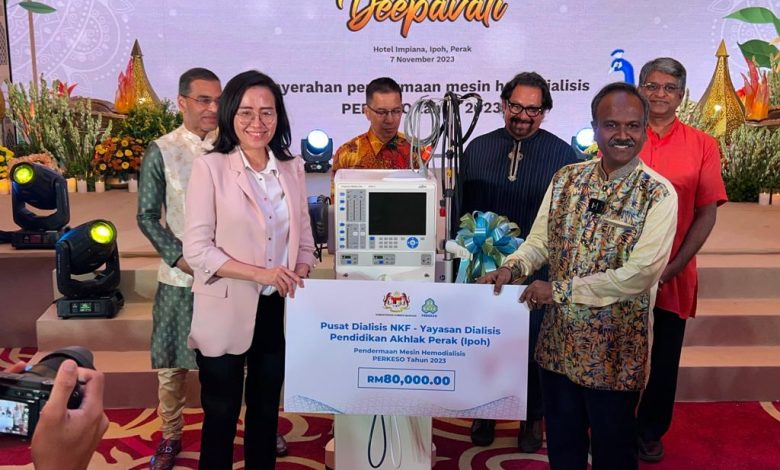

By: Rosli Mansor Ahmad Razali
IPOH: The Social Security Organization (PERKESO) has donated three hemodialysis machines to meet the increasing demand for treatment among chronic kidney patients.
The Minister of Human Resources, V. Sivakumar, stated that they are well aware of the current capacity constraints of hemodialysis machines at PERKESO’s dialysis centres, which cannot fully accommodate the growing demand for treatment.
“The increase in the number of kidney patients in Malaysia over the past decade, as recorded, is among the highest in the world.
More alarmingly, the number of chronic kidney patients requiring dialysis treatment in Malaysia is the highest in Southeast Asia.
“In light of this, one of the ministry’s goals through PERKESO is to assist workers experiencing chronic health problems such as kidney diseases,” he said during a press conference at the PERKESO Deepavali Celebration 2023 event at the Impiana Hotel here today.
Also present were the Chairman of the PERKESO Board, Dato’ Sri Subahan Kamal, and the Group Chief Executive Officer, Dato’ Sri Dr. Mohammed Azman Aziz Mohammed.
A total of three hemodialysis machines were presented by V. Sivakumar. The National Kidney Foundation (NKF) – Perak Moral Education Dialysis Foundation received two units, while another unit was received by the Woh Peng Cheang Seah Moral Uplifting Association.
- Sivakumar also distributed “duit raya” (festive monetary gifts) to orphaned children and single mothers. Aid was also given to nine welfare organizations in and around Ipoh.
As of October 2023, PERKESO has spent nearly RM46.84 million to provide 1,171 hemodialysis machines since the introduction of dialysis treatment by the Social Security Agency in 1998.
According to V. Sivakumar, in addition to dialysis treatment assistance, PERKESO conducts various advocacy and early intervention programs among workers to promote a healthy lifestyle.
“According to current statistics from PwC Malaysia, 41 million deaths are recorded each year worldwide due to non-communicable diseases (NCDs).
“In Southeast Asia, 76 percent of deaths in this region are attributed to NCDs. Therefore, let us adopt a healthy lifestyle and balanced nutrition,” he said.
